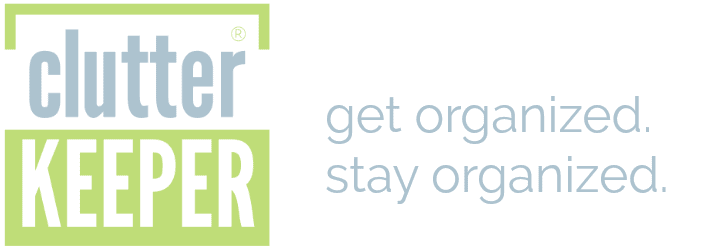Eco-Friendly Home Organizing Tips & Benefits
THIS POST MAY CONTAIN AFFILIATE LINKS. PLEASE SEE OUR FULL DISCLOSURE POLICY FOR DETAILS.
Did you know that by organizing your home, you are being eco-friendly? Here are some sustainable cleaning and organizing tips you’ll love!
One important part of spring cleaning is taking care of the earth as well as our homes. But did you know that by organizing your home, you are being eco-friendly?
It’s true! I’ll share some valuable and easy eco-friendly home organizing tips. You’ll get a much more organized home and discover some sustainable habits that will help out the planet at the same time.
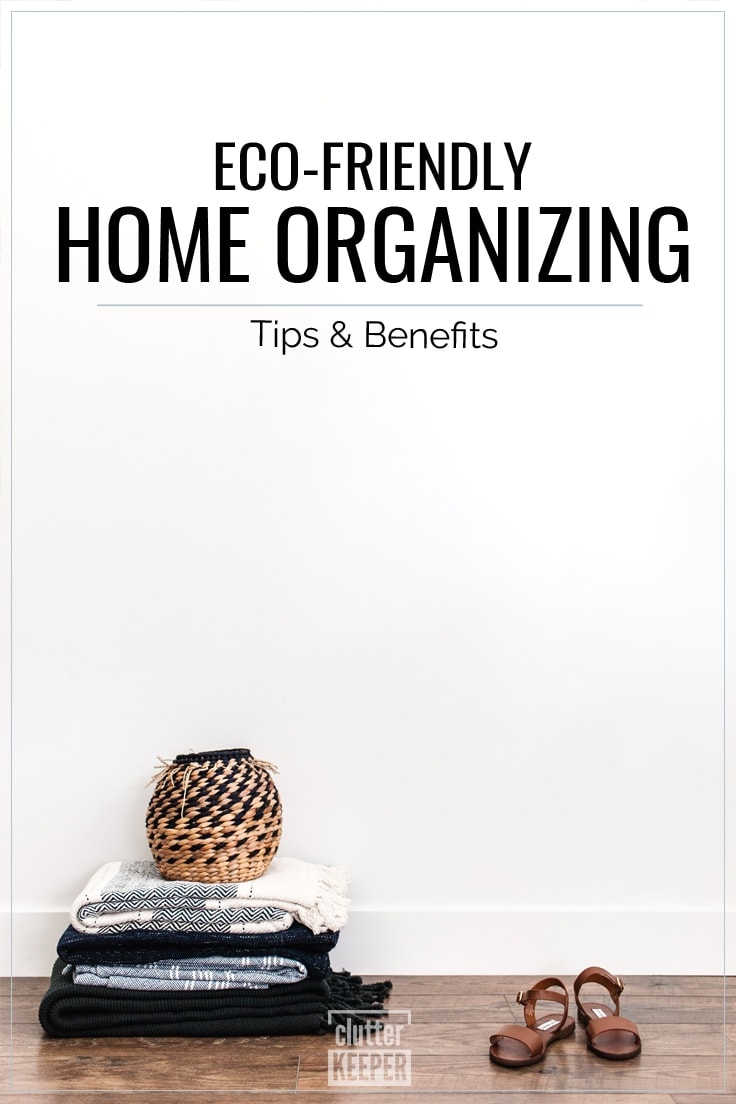
Wondering where to begin? Get our FREE guide, The 30-Minute Organizing Secret, and discover easy ways to overcome the chaos of clutter – even with kids at home!
Earth Day is always celebrated on April 22. This holiday raises awareness around the importance of preserving our planet, and it should serve as an important reminder to us all that we should do our part to take care of our environment.
5 Ways Being Organized is Eco-friendly
Before we get into the specific ways you can be green while you organize your home, I wanted to point out some surprising facts. Caring for the earth has lots of personal benefits too.
#1 use less, waste less
The first way being organized is good for the planet is that it cuts down on overconsumption.
The idea behind only keeping what you love, need, and use, is good for the earth too. As a whole, humanity goes through and wastes lots of products. Some of the most common complaints people have when they start organizing drawers is, “where am I going to keep all this stuff! I have so much!”
Sometimes as people organize their things, they realize they have more than they need and begin to live simpler and buy less. This is better for landfills and the earth in general.
#2 Prevents Duplicate purchases
Another benefit of being organized is that it saves you from overspending.
You know those times when you can’t find that one color of nail polish? So you end up buying another one, only to find that exact color a few days later in another room. Yes, it happens a lot, but more often in disorganized areas.
However, when you have organized drawers, you’ll be able to find exactly what you need when you need it. You won’t have to spend the gas (or mailing materials if shopping online) to buy it again.
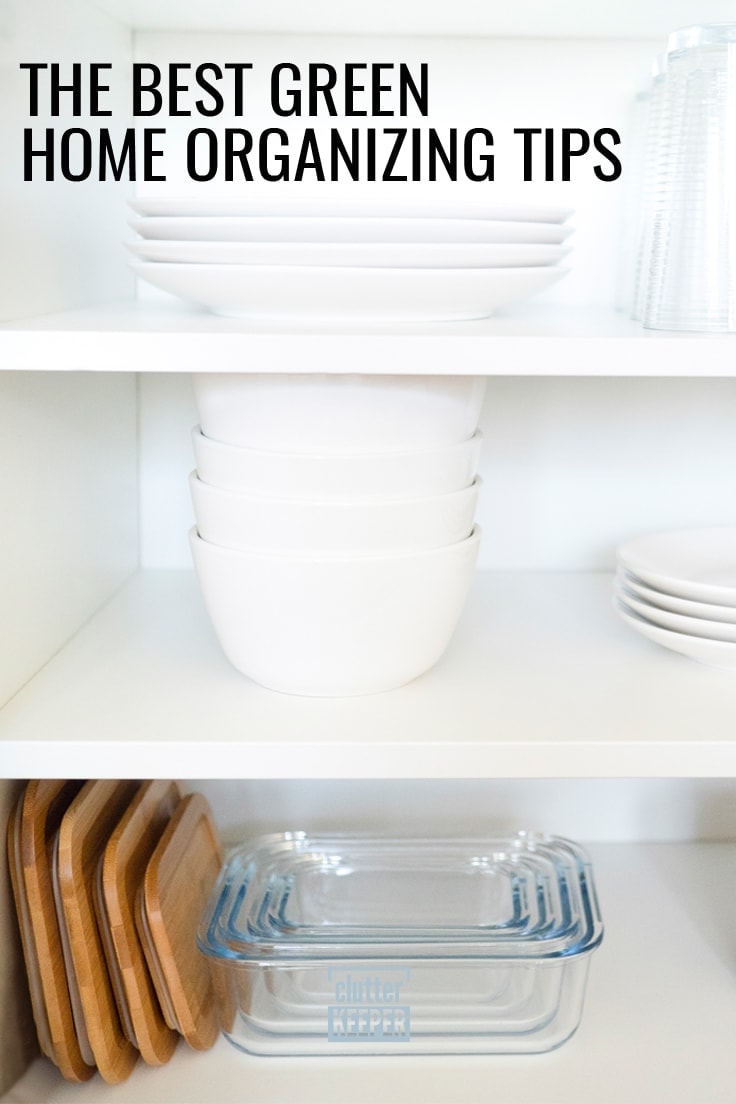
#3 You make better decisions
When you are really organized, you have mental energy that you can dedicate to making green purchasing decisions.
Think about it. When you have a clean and organized kitchen, the next step will be evaluating your cleaning products. Are they good for the planet? Are they toxic? It’s the next logical step.
#4 donating helps others
Another common step when you organize your home is to donate lightly-used items to others. Donating cuts down on waste, but it also prevents overconsumption. By donating your stuff, you are giving it a longer life than just putting it in the landfill.
Plus, donating is a great way to spread kindness. For example, giving brand-new or like-new clothes to women’s shelters gives these women a little bit of beauty when they need it most.
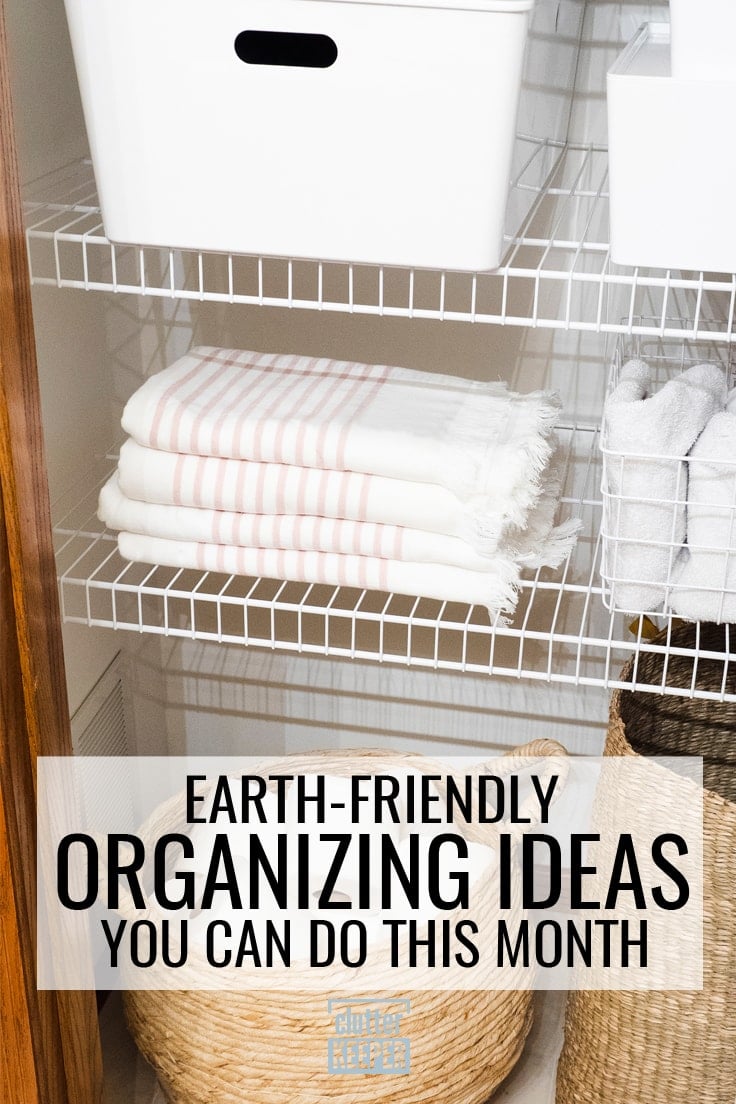
#5 Less Stress
There are lots of harmful habits we have that stem from just being stressed out. And experts say that living in a messy place increases your stress levels.
Tackle your stress and organize one room at a time. You’ll slowly begin to feel more peace and happiness! Revel in these positive emotions and let them fuel you to make greener purchasing decisions and earth-friendly decisions.
There are lots of little steps you can take to keep the environment in mind as you clean and organize your home. Now that you know how beneficial it is, let’s look closely at specific things you can do.
Be eco-friendly: donate before discarding
The first thing you can do as you organize your home is looking for things you can donate. This should be one of the highest priorities. Donate everything you can instead of throwing it away. It’s so important to minimize how much we put into our landfills.
Where to Donate Clothes
There are lots of places that accept lightly-worn clothes. Keep in mind that if you find clothes that are ripped or terribly stained, you might want to upcycle them instead.
But when you find anything that could be worn again or is in usable condition, donate it.
Ask your church or friends for local charities that accept clothes. There are a few national charities that accept clothes. They include:
- Goodwill
- Salvation Army
- Big Brothers Big Sisters Foundation
- Soles for Souls
- Dress for Success
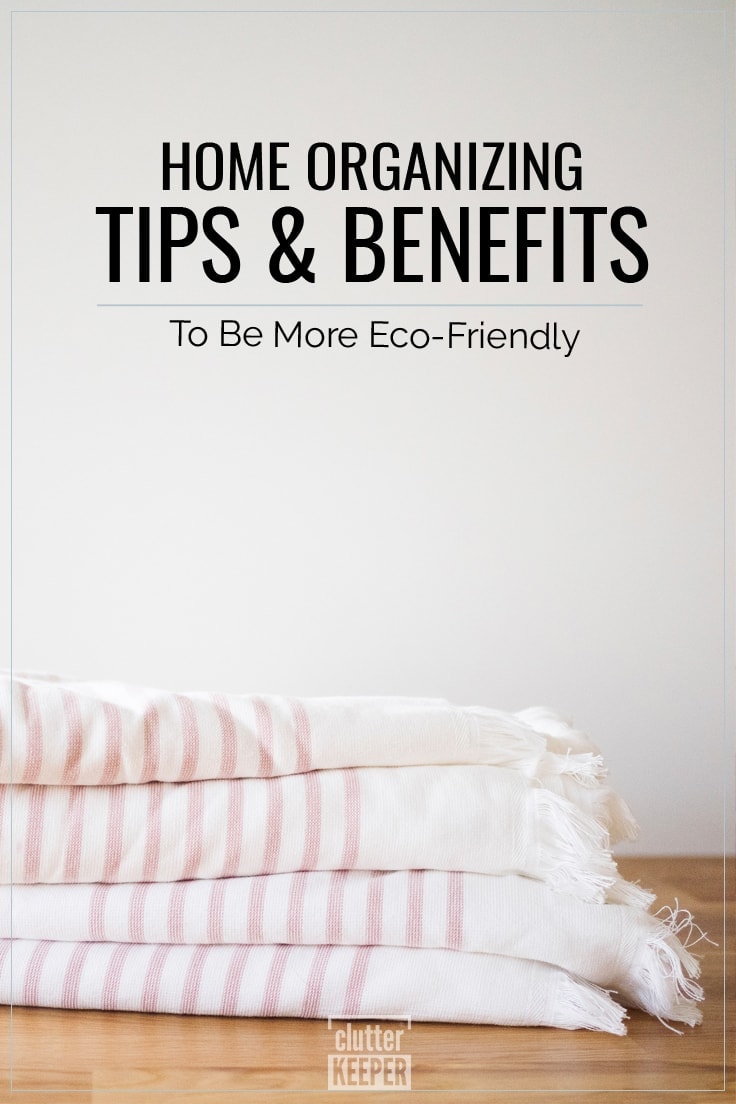
Where to Donate electronics/Old Tech
Do you have electronics that still work but you just don’t like them or use them? Don’t throw them away, donate them. You can also try to sell them first on places like Mercari and eBay.
Here are some popular places that accept donations of electronics.
- Human-IT – They give donated tech like computers to low-income families and non-profit schools.
- World Computer Exchange – They give working computers, monitors, scanners and such to schools in developing countries.
- Cell Phones for Soldiers – When you donate phones or tablets to this organization, they sell them or recycle them and use the proceeds to buy international calling cards for soldiers.
- Computers for Causes – They refurbish the electronics and give them to foster homes, veterans, and schools.
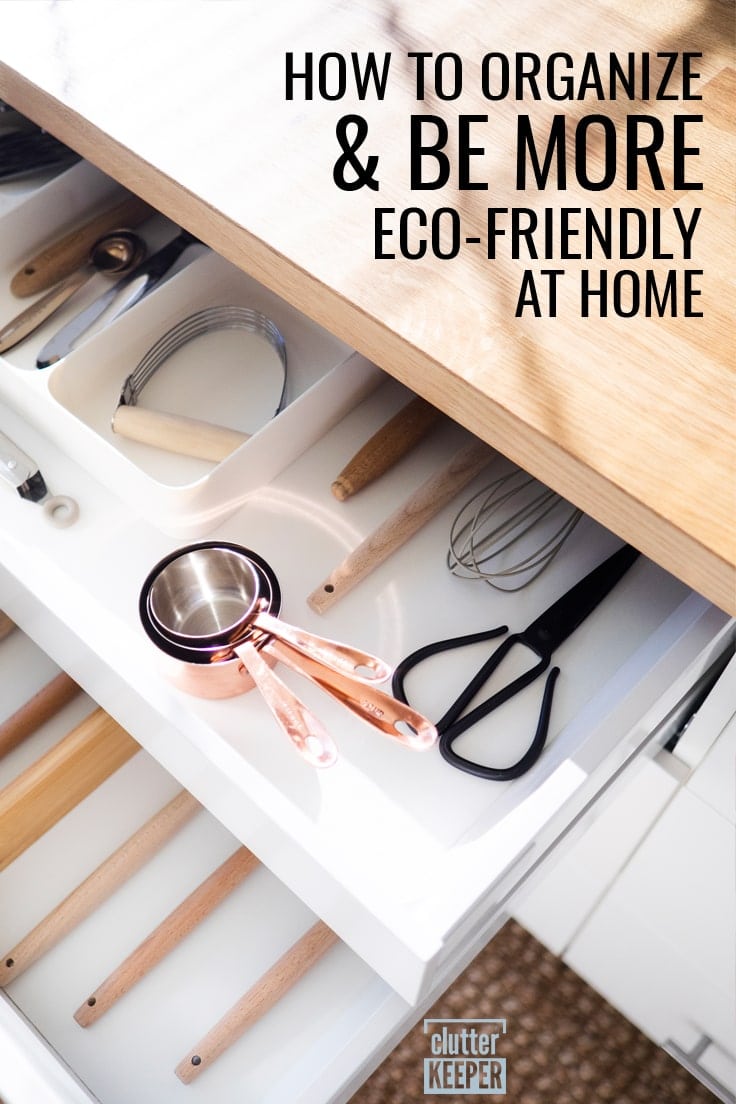
Popular Charities that accept donations
There are lots of niched charities that accept specific donations and give them to people in need. As you go through and organize, here are some charities to keep in mind.
- Donate eyeglasses: Ask your local optometrist if they have an eye-glass collection box. Most places that sell glasses know where you can donate your old pair. Organizations such as the Lions Club will take donated glasses and give them to people in need around the world.
- Donate furniture: Places like Habitat for Humanity ReStore will accept gently-used furniture to be used in future homes or sold for income.
- Donate books: There are lots of charities that work to put books into the hands of children that can’t afford them. Kids Need To Read is an excellent one.
- Donate toys: In addition to Toys for Tots and Goodwill, you can donate used toys to Second Chance Toys.
Recycle What You can
Many plastic, paper, and aluminum products can be recycled. Don’t throw these items in the trash. Instead, recycle what you can.
There are lots of nuances to recycling. You’ll have to sort everything out and recycle them separately. Here are some tips when you go to recycle your old stuff.
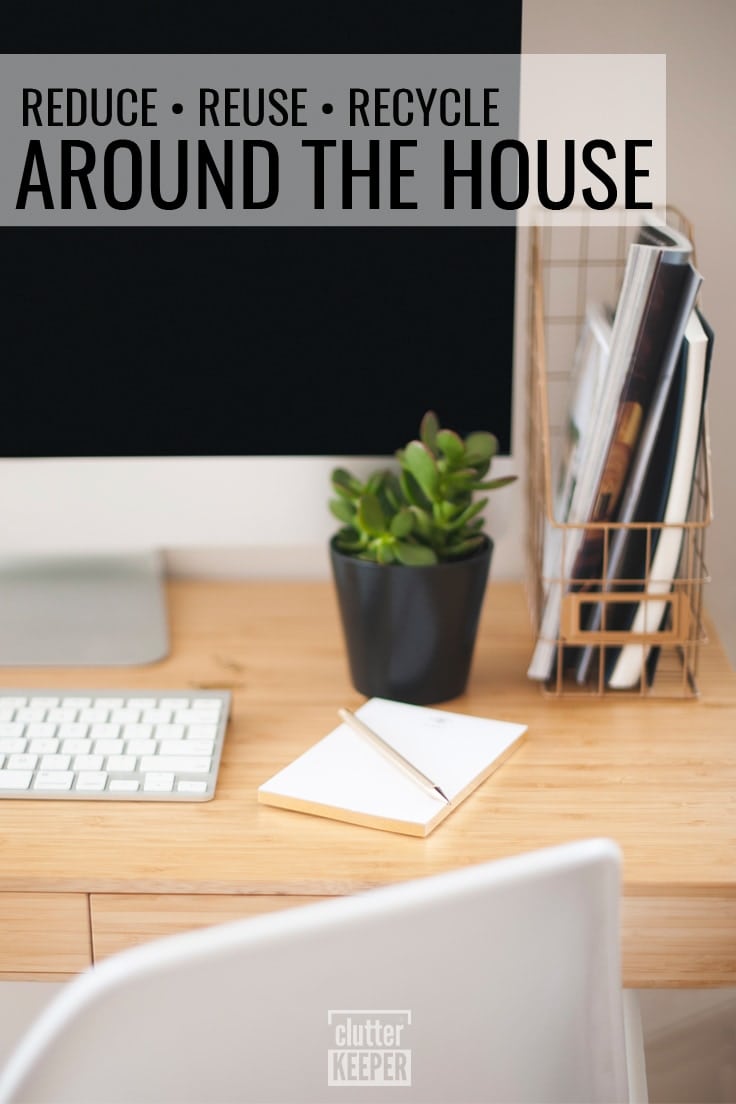
How to recycle electronics
There are businesses like Best Buy that accept electronics for recycling purposes. Call2Recycle accepts rechargeable batteries and phones for recycling.
It is always a better idea to recycle electronics instead of just dumping them in the trash. You can also just go to your local recycling center and ask them if they accept electronics. If they don’t, they might know a local organization that will.
How to recycle when you don’t have curbside pickup
I’ll admit, I personally think all towns should offer curbside recycling pickup. It would make the entire process so much easier. If your community doesn’t offer it, you’ll have to sort everything at home and then drive to the recycling center yourself.
One thing that can save you a bit of time is to join together with your neighbors and share drop-off times (sort of like a carpooling schedule, but for recycling).
However you do it, don’t let this one inconvenience deter you from recycling.
What You Shouldn’t recycle
You probably already know the most common things you can recycle – paper, aluminum, plastic. But what are some things that you can’t recycle?
You shouldn’t recycle these things:
- Anything with food on it – bits of food can contaminate the recycling centers, so you’ll have to throw away most of your takeout containers.
- Plastic bottle caps – Most bottle caps are made from a type of plastic that isn’t recyclable.
- Used paper towels and napkins – These are also too contaminated to be used in recycling centers.
- Plastic grocery bags – Some grocery stores will accept them and recycle them for you, but most local recycling centers won’t take them.
- Wire hangers
- Ceramics – They are not the same type of glass that they can recycle.
- Styrofoam – These are not recyclable and are not biodegradable. Avoid this product as much as you can.
- Colored Paper – Heavily dyed paper (like construction paper) can cause a problem for recycling facilities, don’t include them in your recycling.
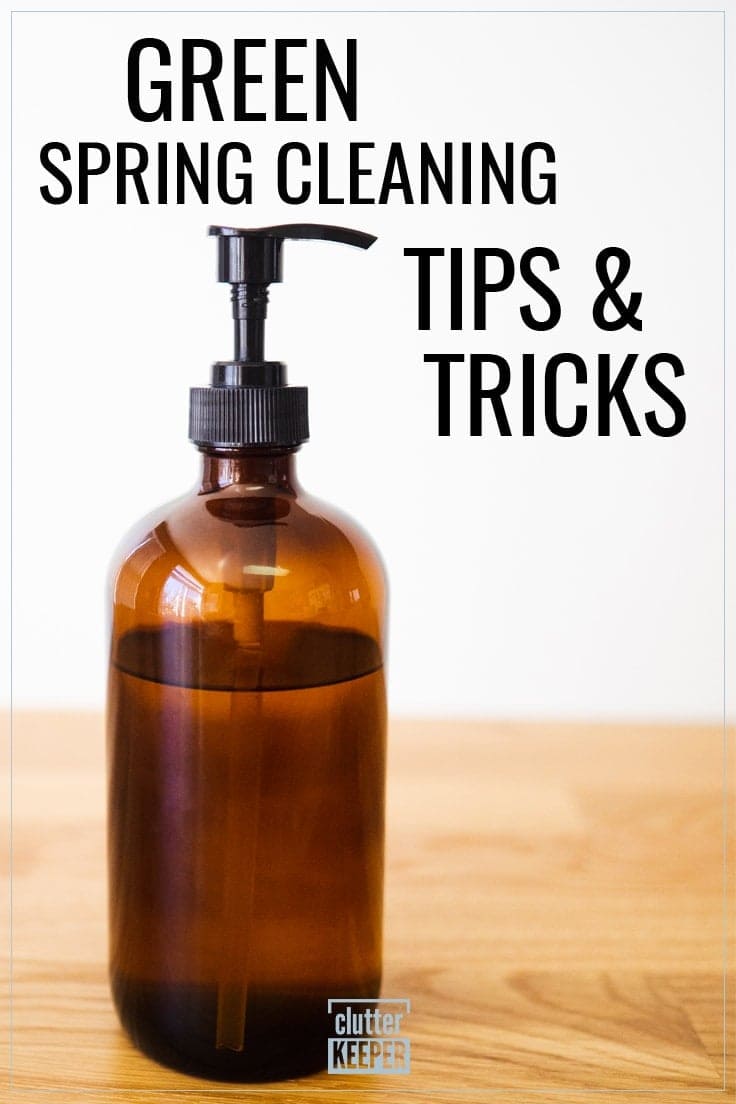
Use Eco-Friendly cleaning products
As you clean your home, look for some earth-friendly cleaning products.
Be aware that the terms “green” or “eco-friendly” are not heavily regulated. You will need to do some research to understand what’s truly safe to use. Lists like this one, which recommends a handful of brands putting out natural and eco-friendly cleaning products, can be a great starting point.
The best way to take care of the environment is to make your own cleaners. That way you know what is in them. Use this list of DIY cleaner recipes for some eco-friendly ideas.
Toxic cleaning ingredients to avoid
There are quite a few things in popular cleaners that are actually bad for the earth. This article from the Environmental Protection Agency explains how to choose some eco-friendly products.
Here are the most common ingredients that you want to avoid:
- Triclosan
- 1,4-Dioxane
- Nonylphenol ethoxylates (NPEs)
- Phosphates
- Phthalates
- Quaternary Ammonium Compounds (QUATs or QACs)
- Volatile Organic Compounds (VOCs)
- Methylisothiazolinone (MI)
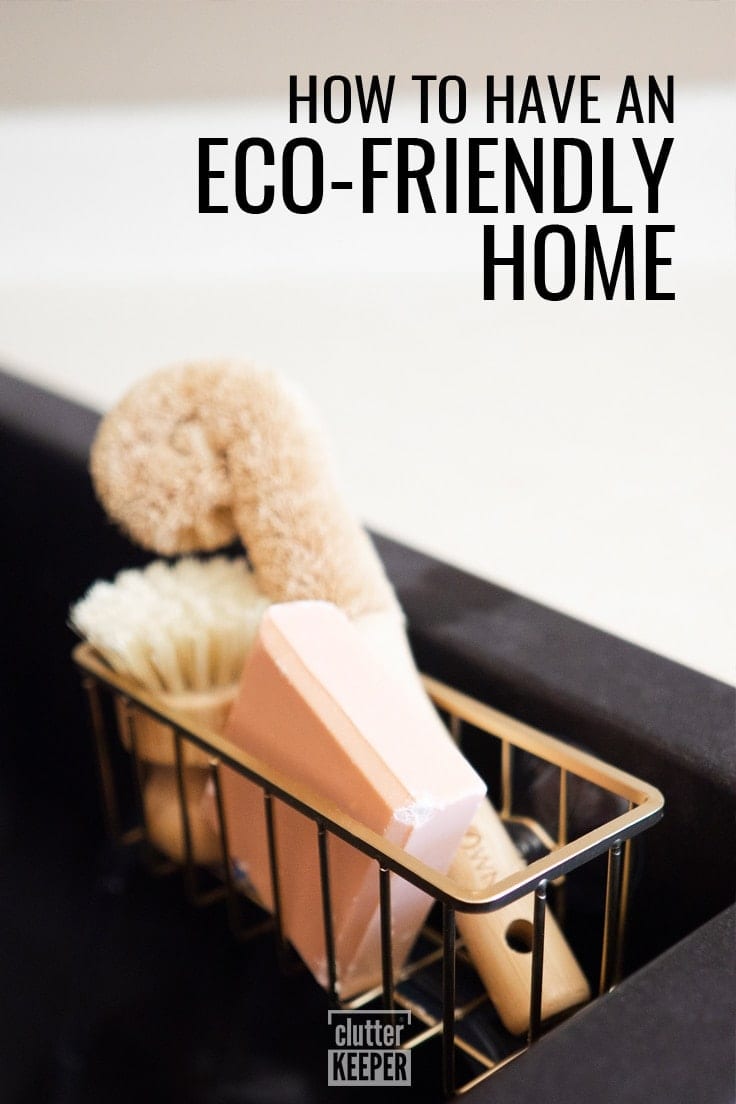
Reduce trash by composting
Another no-brainer way to take care of the earth is to literally create more dirt. You can do this by composting.
Composting reduces the amount of trash you’re sending into the landfill and creates some great fertilizer for your garden too.
You can compost everything from food waste, like eggshells, vegetable scraps, and coffee grounds, to cardboard and lots of other things.
What do you do with a compost pile?
When you compost, keep all your composting materials in a stainless steel bucket or container with a handle. The best place for it is under the sink, so it’s out of sight.
After the bucket is full, take it outside and dump it into your composting pile. This guide explains everything you’ll ever need to know about composting. Basically, you want to keep it covered so it doesn’t become drenched by rain. You need to turn it about once a week to give it fresh air and let it decompose faster.
A compost pile is an organic and eco-friendly way to add nutrients back into the dirt. They are really great for gardens.
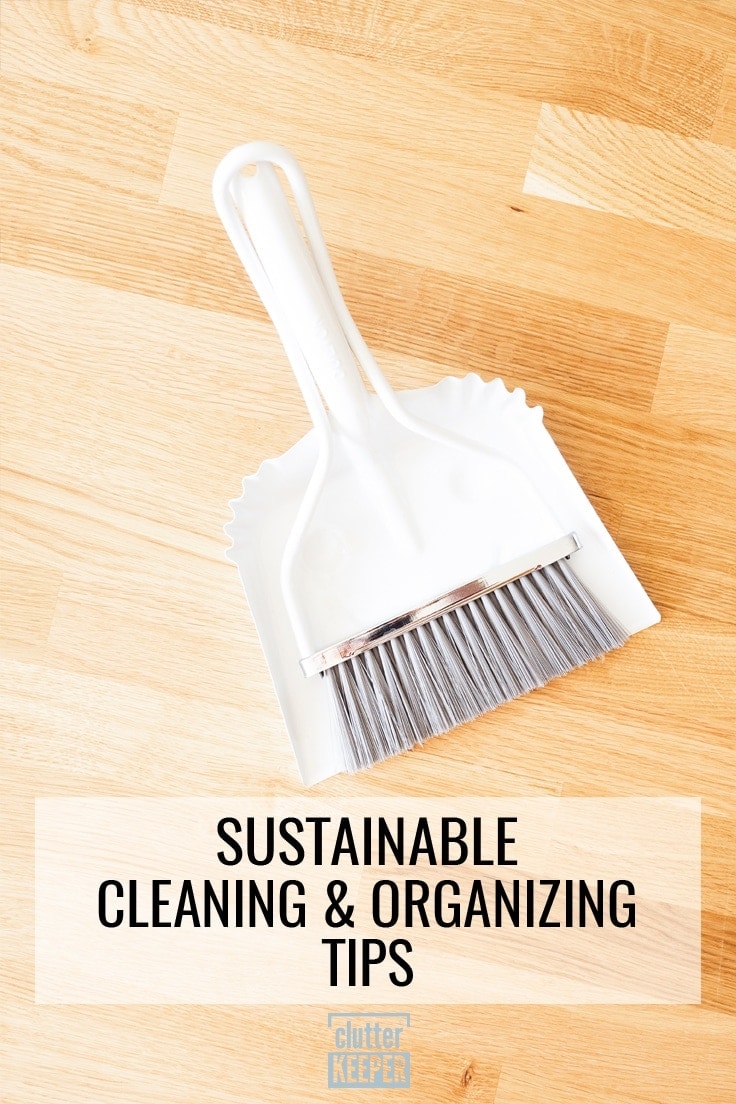
Use earth-friendly storage bins
When you are deciding to buy totes and bins for organizing your stuff, choose products that have a low impact on the environment.
Green and eco-friendly organizing products
The best way to be green when you organize your home is to repurpose current things. Anything you can save from the landfill is a win!
The Container Store also has some fantastic green products made from eco-friendly materials. Look for things made out of bamboo, it’s a very sustainable product.
Other things to look for when you are buying eco-friendly bins include:
- Made from recycled materials
- Wood products
- Wicker baskets
- Recyclable plastic
Go paperless
Going paperless will cut down on waste, but also a lot fewer headaches too. Here on Clutter Keeper®, you’ll find a complete guide about how to go paperless.
By reducing the amount of paper you and your family consume, you’ll do your part to help the planet – and you’ll make it easier to keep your space organized, too.
sustainable living and eco-friendly organizing
By taking care of the earth, you’ll discover that you are also taking care of yourself. It’s amazing, but going green actually saves you money and gives you more inner peace too.
If you have more eco-friendly organizing tips, please share them. I’d love to discover more!
Struggling to get motivated? Sign up to get our FREE guide, The 30-Minute Organizing Secret, and discover easy ways to overcome the chaos of clutter – even with kids at home!
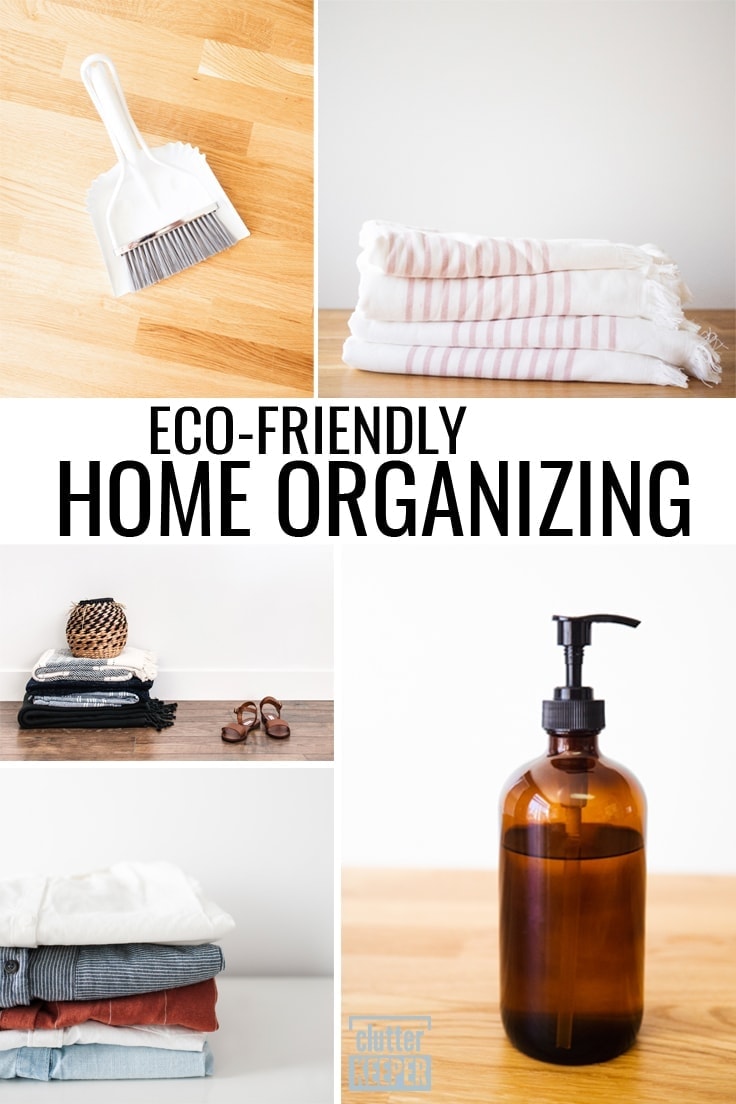
More Home Organization tips
Here are some more home organization tips that will help you get organized and stay organized.
